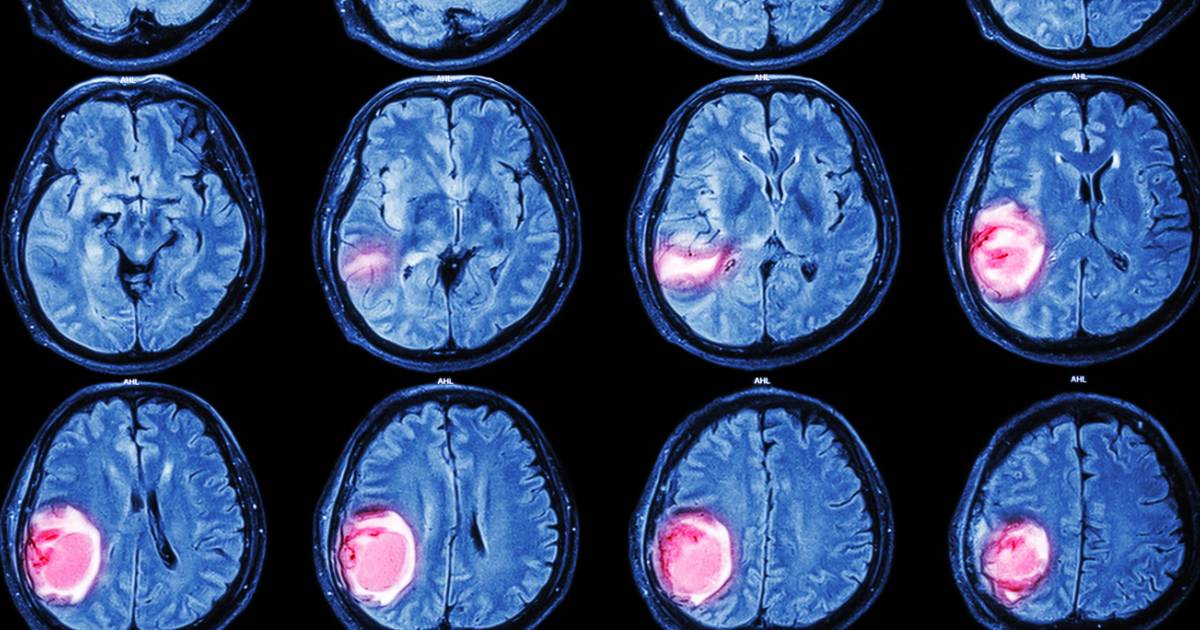The Most Common Symptoms Of A Brain Tumor
Brain tumors occur when abnormal cells accumulate in the brain. They can be cancerous (malignant) or unlikely to spread (benign). Since there is a limited amount of space in the brain, even a non-cancerous tumor can cause multiple problems. Brain tumors can interfere with brain and body function, increase inflammation, elevate skull pressure, and destroy brain cells, which leads to neurodegenerative disease. Tumors can form from cells directly in your brain or from cells in other parts of your body. Look for these common symptoms that everyone should be aware of now.
Gradual Vision Loss

Individuals who experience progressive vision loss may not even be aware of it, which makes it hard to associate with a brain tumor. A sign of impaired peripheral vision is when a person keeps bumping into things on the side of the body in which the tumor is located. Double vision, blurred vision, and vision loss are common symptoms of a brain tumor. According to Doctor Christopher Carrubba at Med School Tutors, “We often see this symptom with pituitary tumors that compress the optic chiasm, or part of the visual pathway.” Pituitary tumors affect the optic nerve, causing vision problems, due to their development. A brain tumor in the occipital lobe might cause vision loss in one or both eyes as well.
Continue reading to discover another common symptom now.
Muscle Weakness

A brain tumor might affect the manner in which an individual is able to control their muscles. Even if they do not experience muscle pain, their muscles might not respond to any of their commands to move. Tumors along the right and left motor complex disrupt the signal the brain sends to the muscles, which can result in a complete loss of function. An individual should talk to their doctor if they are having difficulties moving any particular part of their body as this might be a sign of a brain tumor.
Next, find out how a tumor can affect a person's speech.
Slurred Speech

When a tumor is present in the brain, it may affect the ability to speak or make sounds. Slurring and stuttering speech, using inappropriate words, and nonunderstandable words are common language-based signs of a brain tumor. Doctor Carrubba stated, “Language problems such as stuttering, difficulty naming objects or understanding what others are saying are key symptoms of a tumor in the frontal or temporal lobes, areas of the brain associated with the motor function of speech and language comprehension. There are two speech centers in the brain that are located on the left side—Wernicke’s area, which allows us to understand and comprehend speech, and Broca’s area, which activates the muscles that create sound.”
Furthermore, the patient will generally have difficulties forming a meaningful sentence, experience problems reading out loud what they have written, and might also use non-existent words. All of these language and speech-related difficulties are signs of a migraine attack, a stroke, or a brain tumor, therefore, a patient should be examined by a doctor as soon as they notice these changes.
Keep reading to further learn how a brain tumor can affect an individual's personality.
Psychiatric Problems

A brain tumor affecting the frontal lobe may have an impact on a person’s behavior. Depending on the exact location and size of the tumor, an individual's personality traits and mood can be significantly altered. They may become overly aggressive or sexual, or exhibit anger and agitation. Doctor Sumeet Vadera, Neurosurgeon at the University of California-Irvine, said, “Patients suffering from a brain tumor may develop depression, anger or anxiety, even if they don’t commonly exhibit these types of emotions. This is related to tumor irritation or compression of portions of the frontal lobe, which is responsible for many of our personality traits.” Personality changes can also be related to mental conditions, such as bipolar disorder, so it is imperative that if an individual begins to notice their personality has altered or they are experiencing rapid mood swings moreso than usual, they should consult a medical professional to find the root cause.
Continue reading to uncover how a tumor can affect a person's hearing.
Ear Ringing

The area of the brain responsible for processing the ability to hear is called the temporal lobe. It is located at the bottom middle part of the cortex behind the temples. Tinnitus occurs when a person hears a constant ringing in their ears and it may develop when a tumor is pressing on the temporal lobe. If a person experiences hearing loss or a constant ringing, it is time to make an appointment with a doctor to see if the symptoms they are experiencing are severe enough to meet with a neurologist.
Next, uncover how a tumor can disrupt a person's sense of balance.
Imbalance

The brain plays a major role in balance and coordination. Loss of motor function can be due to a brain tumor located in the cerebellum, which is the primary motor cortex or the parietal lobe, or the area of the brain that controls coordination and balance. If a patient is suddenly having difficulty walking or balancing themselves, especially in the dark, it is a good idea to see a doctor. Motor function majorly affects an individual's ability to walk straight, so if they are leaning more towards one side, this may also be a significant sign of a brain tumor.
Keep reading to discover how a simple symptom can be a major indicator of this condition.
Headaches

Although headaches are extremely common and could be the result of many different factors, many should be aware that any new headaches that develop daily for no apparent reason could be a sign of a condition, such as a brain tumor. According to Doctor Mike Chen at the Department of Neurosurgery at City of Hope, “These headaches tend to get worse over time and are often present when you wake up in the morning when intracranial pressure is high from lying in bed for hour-long periods of time.” If a headache lasts longer than usual, occurs more often as well, and happens with the patient is not dealing with any stress or allergies, they should consult their doctor to discover the main cause of these headaches.
Next, discover how a brain tumor can affect reproduction.
Infertility

A pea-sized portion of the brain located at the base called the pituitary gland is responsible for producing hormones that may affect fertility. According to Doctor Chen, “Tumors affecting the pituitary gland can secrete high amounts of hormones or prevent the normal gland from working.” A woman who experiences a brain tumor may not be able to conceive or produce milk after giving birth. Likewise, a male with a brain tumor may lack certain hormones needed to reproduce.
Continue reading to learn about another serious sign of a brain tumor.
Seizures

As one of the most common and first symptoms to appear, seizures are experienced by approximately sixty percent of patients who are diagnosed with a brain tumor and will experience at least one, either before or after their diagnosis. The brain contains billions of nerve cells which control the way we think, feel, speak, and move, and these tiny nerves do this by passing electrical signals or messages to each other. In patients with a brain tumor, seizures may be caused by the cells that surround the tumor that has developed abnormally or can be caused by a chemical imbalance in the brain as a result of the tumor.
Epilepsy is connected to brain tumors, as a specific type of epilepsy exists as a result of a tumor, known simply as brain tumor-related epilepsy (BTRE). A patient is more likely to experience a seizure or develop BTRE if the tumor is slow-growing and low grade, however, this doesn’t mean the patient will have a seizure. Also, an individual is more likely to develop BTRE if the tumor is in one of the lobes of the cerebrum (cerebral cortex) or the meninges, which are the membranes that cover and protect the brain and spinal cord, in comparison to a tumor that is deep in the brain, in the brainstem, or cerebellum.
Keep reading to uncover this next common symptom of a brain tumor now.
Nausea And Vomiting

These symptoms, especially if they are experienced early in the morning and are unrelated to other medical conditions, such as pregnancy or the flu, may be a warning sign of a brain tumor. Common symptoms of a brain tumor, nausea and vomiting occur due to the increased intracranial pressure from the brain tumor, resulting in these symptoms to appear first thing in the morning when the patient wakes up or after an extended period of inactivity. This symptom needs to be investigated with caution though, and individuals should not associate their nausea with a brain tumor automatically, as many other medical conditions can cause nausea, vomiting, or an upset stomach. If these symptoms become too much for the patient, they should try to ingest ginger to naturally treat it, drink plenty of clear and ice-cold drinks, and can take certain medications that can help treat it.
Next, reveal how a tumor can cause a patient to become confused and disoriented.
Frequent Confusion & Cognitive Issues

Feeling constantly confused, loss of concentration, memory loss, and disorientation are common cognitive issues patients with a brain tumor can experience. Depending on the location of the tumor, it can begin to affect cognitive performance due to the pressure the tumor is putting on these specific areas of the brain. Naturally, declining cognitive abilities are a sign of other neurological conditions such as Alzheimer’s disease and dementia, meaning that a decline in brain function does not necessarily indicate a brain tumor. However, noticeably declining cognitive abilities and various cognitive problems are critical symptoms that need to be reported to a medical professional as soon as possible so that the initial cause of these cognitive issues can be assessed, diagnosed, and treated as soon as possible.
Brain tumor symptoms largely depend on the location of the tumor within the brain. Reveal why location is significant in diagnosing a brain tumor now.
Location Of Symptoms

Numerous symptoms associated with a brain tumor or brain cancer are predominantly influenced by the location in the brain of where the tumor or cancer is and the functional system it affects. For instance, language, sensory, or motor functions can be affected, relating to slurred speech, muscle weakness, and imbalance. Furthermore, a tumor that is near the optic nerve can result in blurred vision or even vision loss, or a tumor that is located in the front part of the brain can affect the patient’s ability to think and concentrate, resulting in confusion, headaches, and even memory loss. The size of the tumor can greatly affect the types and severity of the symptoms experienced, as a bigger tumor can create multiple symptoms due to the pressure of the mass on the brain.
